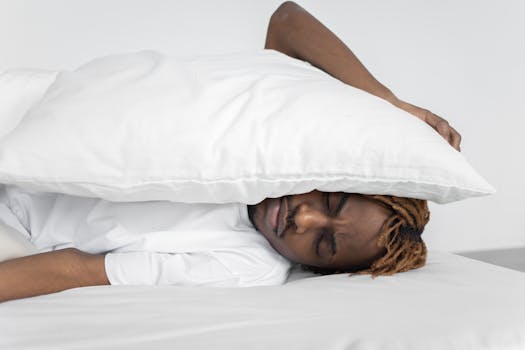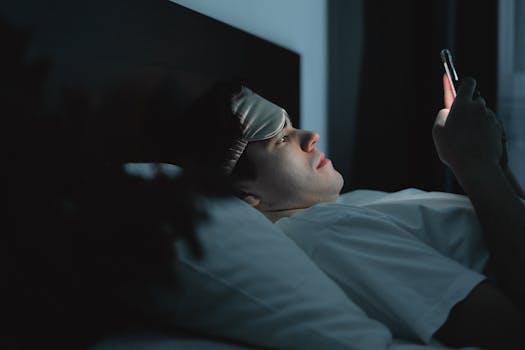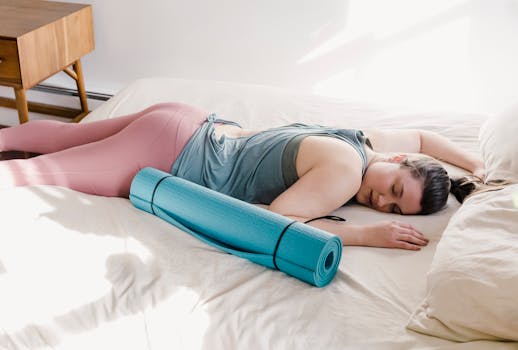
“
Creating a Balanced Sleep Routine for Better Rest
Focus Keyword: Balanced Sleep Routine

A balanced sleep routine is essential for maintaining good physical and mental health. During sleep, our bodies repair and regenerate damaged cells, build bone and muscle, and strengthen our immune systems. A good sleep routine can also improve cognitive function, including concentration, memory, and problem-solving skills. In this article, we will explore the importance of a balanced sleep routine and provide tips on how to create one for better rest and improved overall health.
Why is Sleep Important?

Sleep is crucial for our overall health and wellbeing. When we sleep, our bodies go through different stages of sleep, including light sleep, deep sleep, and REM (rapid eye movement) sleep. Each stage is important for physical and mental restoration. During sleep, our bodies:
- Repair and regenerate damaged cells
- Build bone and muscle
- Strengthen our immune systems
- Improve cognitive function, including concentration, memory, and problem-solving skills
- Regulate emotions and reduce stress
What is a Balanced Sleep Routine?

A balanced sleep routine involves going to bed and waking up at the same time every day, including weekends. It also involves creating a relaxing bedtime routine to signal to the body that it’s time to sleep. A balanced sleep routine can help:
- Improve sleep quality
- Increase energy levels
- Enhance cognitive function
- Boost mood
- Support weight management
How to Create a Balanced Sleep Routine

Creating a balanced sleep routine requires discipline and consistency. Here are some tips to help you create a balanced sleep routine:
- Set a consistent sleep schedule: Go to bed and wake up at the same time every day, including weekends.
- Create a relaxing bedtime routine: Engage in relaxing activities, such as reading, meditation, or a warm bath, to signal to the body that it’s time to sleep.
- Optimize your sleep environment: Make your bedroom a sleep haven by ensuring it is dark, quiet, and cool.
- Avoid stimulating activities before bedtime: Avoid activities that can interfere with sleep, such as watching TV, using electronic devices, or engaging in intense exercise.
- Limit exposure to screens before bed: The blue light emitted by smartphones, tablets, and computers can suppress melatonin production, making it harder to fall asleep.
- Avoid caffeine and nicotine: Both caffeine and nicotine can disrupt sleep patterns and make it harder to fall asleep.
- Get regular exercise: Regular exercise can help improve sleep quality, but avoid intense exercise within a few hours of bedtime.
Additional Tips for a Balanced Sleep Routine

In addition to the tips above, here are some additional tips to help you create a balanced sleep routine:
- Try progressive muscle relaxation: This technique involves tensing and relaxing different muscle groups to release tension and promote relaxation.
- Practice deep breathing exercises: Deep breathing can help calm the mind and body, making it easier to fall asleep.
- Get some morning sunlight: Exposure to natural light in the morning helps regulate the body’s circadian rhythms, which can help improve sleep quality.
- Try mindfulness meditation: Mindfulness meditation can help reduce stress and anxiety, making it easier to fall asleep.
Conclusion

Creating a balanced sleep routine is essential for maintaining good physical and mental health. By following the tips outlined in this article, you can improve sleep quality, increase energy levels, enhance cognitive function, and boost mood. Remember, a balanced sleep routine involves discipline and consistency, but the benefits are well worth the effort. For more insights on enhancing your lifestyle, you might enjoy reading about Luxury Cars: The Epitome of Style and Performance or explore Breakthroughs in Renewable Energy Technology and Sustainability to understand how a balanced lifestyle can extend beyond sleep.
See more:
https://www.sleepfoundation.org/
https://www.healthline.com/nutrition/sleep-routine
https://www.mayoclinic.org/healthy-lifestyle/adult-health/expert-answers/sleep/faq-20417394



